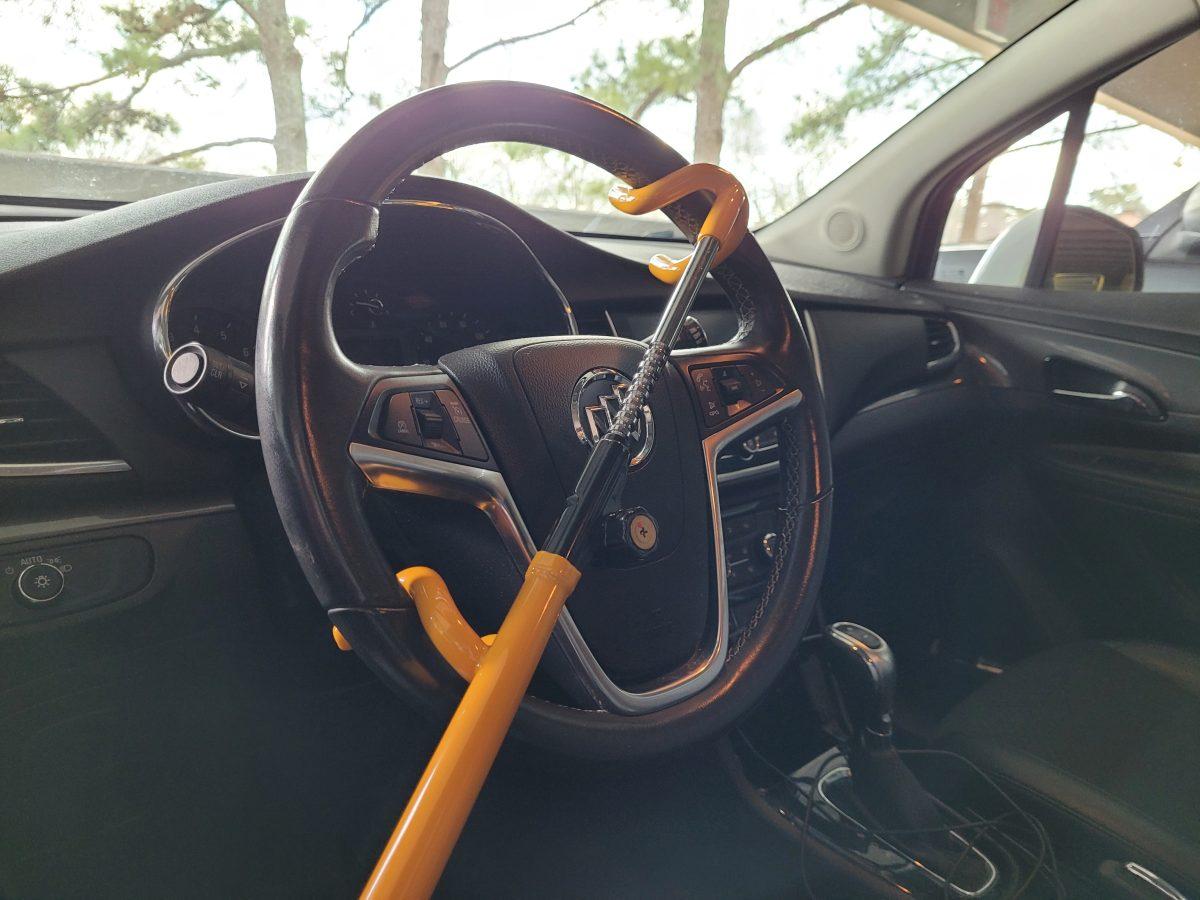NC State Police is offering steering wheel locks and ramping up efforts to ensure the safety of vehicles after an increase in car break-ins on campus, particularly among Kia and Hyundai vehicles.
Nate Hitchings, sergeant of criminal investigations at NC State Police, said car break-ins have always been a fact of life in his ten years at NC State Police but have significantly increased lately.
“It hasn’t been quite as prevalent as it has been recently, as people have found out there are issues with certain brands, makes and models of cars — specifically Kia and Hyundai — but there have always been some on campus, it seems that more than normal,” Hitchings said.
Kia and Hyundai vehicles are more susceptible to break-ins because many of their vehicles on the roads lack immobilizers, an electronic security device that prevents the engine from being started unless the correct key is present.
Last year, NC State Police and NC State Transportation received steering wheel locks through a community outreach and crime prevention grant from Kia. Any student who owns a Kia or Hyundai vehicle made between the years 2011-2022 can receive a free lock without an appointment from the police station.
Hitchings said wheel locks work by immobilizing the steering wheel through a clamp that secures both sides of the wheel, preventing any movement. The lock is made from a metal bar and can only be unlocked with a key.
“The idea being that if the steering wheel can’t turn, then you can’t turn the car, so there’s no use taking it,” Hitchings said.
Hitchings said NC State Police is also increasing the frequency of patrols at night.
“We’re required to check each parking lot at least twice a night,” Hitchings said. “But with the reason [of] car break-ins and car thefts, we’ve actually increased those patrols where, especially if we’re noticing a trend where there’s more crime happening in a certain area, you might have an officer traveling through a parking lot once an hour.”
Students can be proactive in preventing break-ins by parking in well-lit areas, near cameras and in areas where people are more likely to be active, Hitchings said.
Hitchings said most stolen vehicles from campus are recovered, but only after someone else has located them after being dumped at a crime scene. He said keeping tracking devices like Apple Air Tags hidden in a vehicle might increase the chance of it being located before it is discarded.
The Kia and Hyundai flaws were publicized through a TikTok trend last year called the “Kia Challenge,” in which thieves jam USB cables into the steering column, making the car start without a key and not triggering any alarms, due to the lack of an immobilizer.
Kenneth Granlund, associate professor of mechanical engineering, said Kia and Hyundai most likely did not include immobilizers in the production of their vehicles to cut costs and keep car prices low.
“There’s always going to be one manufacturer who’s going to take the cheaper route selling cheaper cars, and hopefully, undercutting the competition by having less safety in something,” Granlund said.
Granlund said another possible reason is that car theft rates are much lower in South Korea, where Kia and Hyundai vehicles are designed, than in the United States. By updating U.S. models to include immobilizers, Granlund said these companies could be a better fit for the U.S. market.
Students who own Kia and Hyundai vehicles made between 2011 and 2022 can pick up steering wheel locks from the NC State Police 24 hours a day or the NC State Transportation office Monday through Friday from 8 a.m. to 5 p.m.













